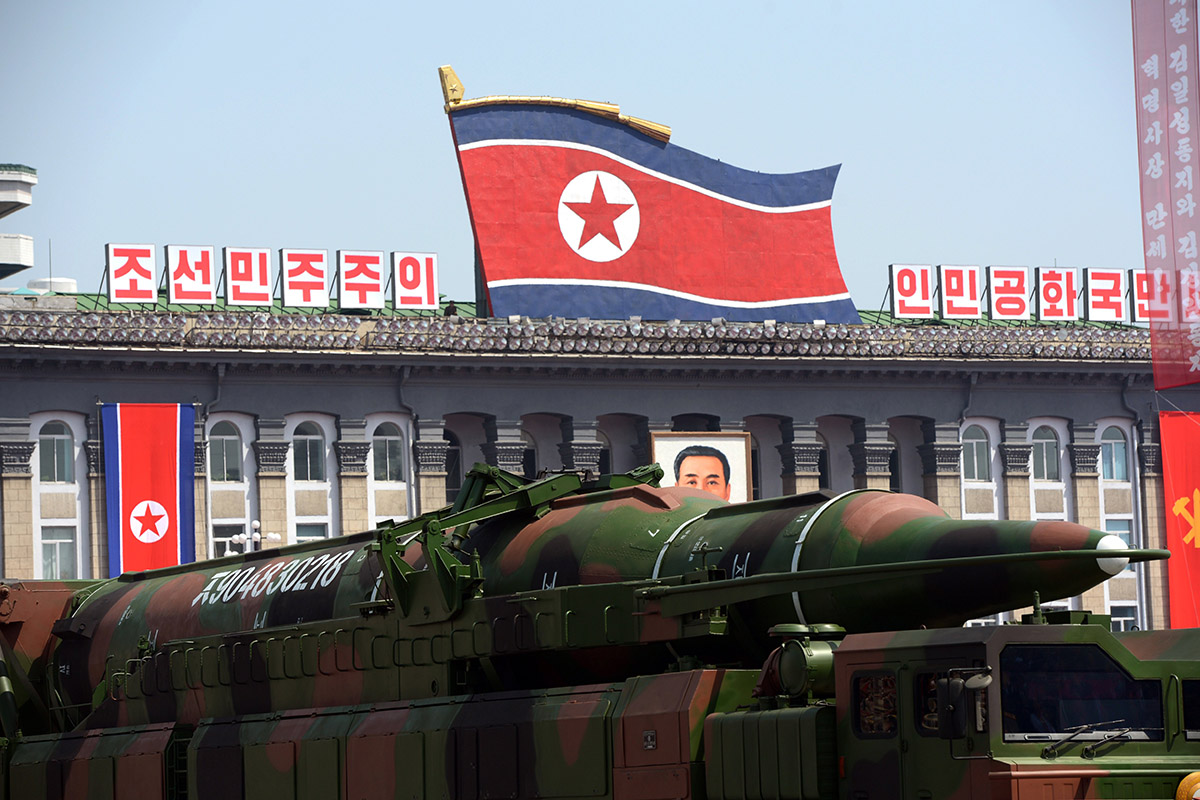China will send a special envoy to North Korea this week, state media said Wednesday, after US President Donald Trump concluded an Asian tour to rally support against Pyongyang's nuclear threats.
Friday's trip by President Xi Jinping's special envoy, Song Tao, is likely a diplomatic push by China to resolve the nuclear standoff, though the official Xinhua news agency merely said he will discuss last month's Chinese Communist Party congress.
As Beijing prepared for the mission, Pyongyang maintained its war of words with Trump, with a ruling party newspaper saying the US president deserved the death penalty for insulting North Korean leader Kim Jong-Un.
China's announcement came a day after the end of Trump's five-nation tour of Asia, during which the US leader held meetings with Xi and urged him to act fast to rein in North Korea, warning that "time is quickly running out".
Trump has urged the region to take a united stance against the threat posed by isolated North Korea, which has sparked global alarm with its nuclear and missile tests in recent months.
As tensions have surged China has backed a series of United Nations sanctions on Pyongyang and imposed banking restrictions on North Koreans, putting the Cold War-era allies at odds.
Song will be the first Chinese official to make an official trip to North Korea since October 2016, when vice foreign minister Liu Zhenmin visited. Xi has never met Kim.
Washington has pressed China to intensify use of its economic leverage over North Korea to strongarm Pyongyang into halting its nuclear weapons and missile programmes.
Song, who is head of the Communist Party Central Committee's international affairs department, will present to Pyongyang the "consensus" for a peaceful solution that Trump and Xi reached during their meetings, said Wang Dong, foreign policy specialist at Peking University.
"China is now actively making diplomatic efforts," Wang told AFP.
"The envoy's visit is to persuade North Korea, hoping that North Korea will return to the track of peaceful resolution of the nuclear issue," he said.
'Upping the sanctions'
US officials want Chinese authorities to clamp down on unauthorised trade that they say is still trickling across the North Korean border.
"China can fix this problem easily and quickly, and I am calling on China and your great president to hopefully work on it very hard," Trump said alongside Xi last Thursday.
For his part, Xi repeated his plea for the issue to be resolved through negotiations, saying China was ready to discuss a path toward "enduring peace and stability on the peninsula".
On Sunday, Trump said Xi stated that "he is upping the sanctions against" North Korea, but he did not provide details and China has not announced any new punitive measures.
Beijing fears pressuring Kim's regime into collapse, triggering a flood of refugees across its border and eliminating a strategic buffer separating China from the US military in South Korea.
It has condemned the North's missile tests, but hopes to resolve the nuclear crisis through diplomatic means, pleading for a resumption of long-dormant six-nation talks.
China and Russia have campaigned for a "dual track" approach in which the United States would halt its military drills in the region in return for North Korea suspending its weapons programmes, but the proposal has not gained traction.
"Before Trump's visit to China, there was a strong smell of gunpowder between the US and North Korea," Wang said.
"The nuclear issue at a key point. If the US or North Korea make a wrong move, it will likely result in military conflict. So China is trying to do all sorts of work, first to persuade the United States, and now also North Korea."
'Hideous criminal'
China's calls for restraint have not stopped the name calling.
An editorial in North Korea's ruling party newspaper Rodong Sinmun lambasted Trump's visit to South Korea, where he denounced Pyongyang's "cruel dictatorship" in a speech to legislators in Seoul.
"The worst crime for which he can never be pardoned is that he dared (to) malignantly hurt the dignity of the supreme leadership," the editorial said.
"He should know that he is just a hideous criminal sentenced to death by the Korean people." – AFP
Recommended stories:
